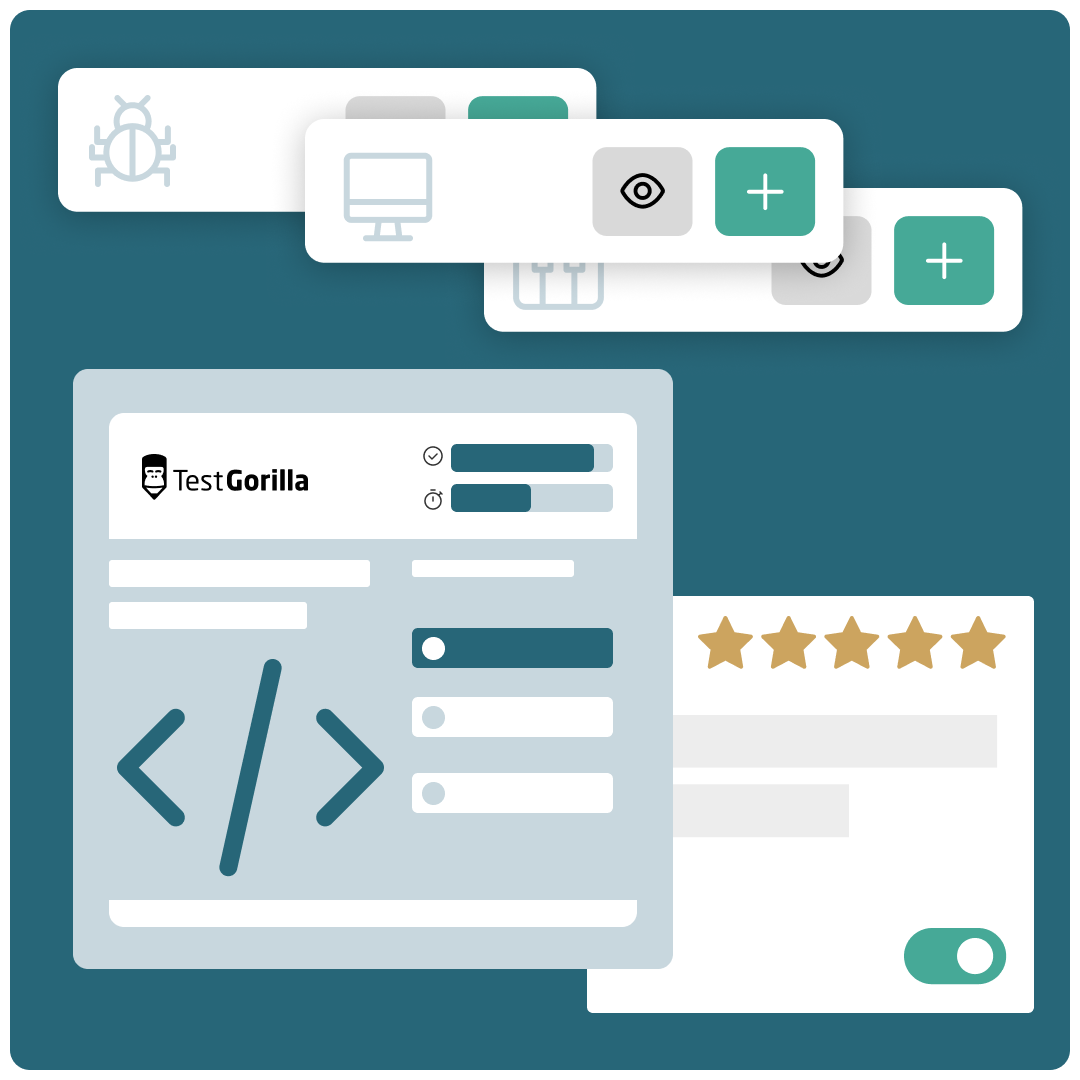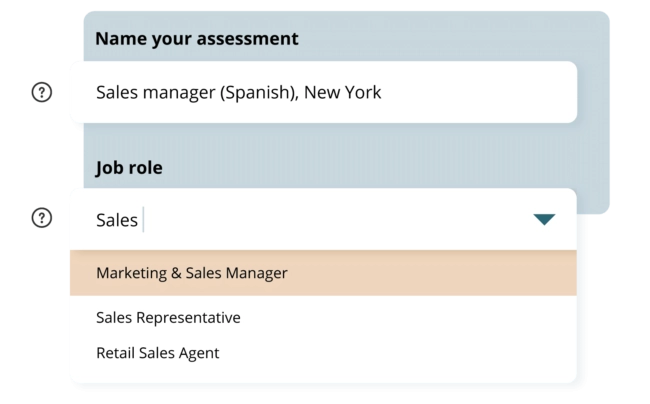R coding test: Pre-employment screening assessment to hire the best developers and data experts
Summary of the R (Coding): Debugging test
This R coding test assesses candidates’ ability to interpret R code and debug it based on a set of given requirements. For this R debugging test, candidates have 30 minutes to read through the requirements and fix a partially working script.
Covered skills
Debugging Questions
Use the R (Coding): Debugging test to hire
R developers, including data analysts, data scientists, statisticians, economists, and researchers, especially those in senior positions, or any position that requires the ability to read and correct the R code of others.
Type
Time
Languages
Level
About the R (Coding): Debugging test
R is a popular programming language used for data analysis, statistics, and machine learning. R is widely used in various industries, including finance, healthcare, and marketing. Its ease of use and flexibility have made it a popular choice for data scientists and analysts.
The ability to debug code is an essential skill for successful R developers with advanced coding knowledge. As new features are being developed, bugs may be introduced into the code and disrupt the regular function of your software. It is, therefore, important for a developer to be able to identify bugs in the code based on a set of requirements and fix them. Given the collaborative nature of software development, it is also critical to be able to work with and correct the code of other developers.
This test provides candidates with a small R script that contains one or more bugs. The description clarifies the objective of the code and provides examples to illustrate how it should function. Candidates must then identify the bugs and fix them.
Candidates can run their code to see if certain pre-defined inputs return the expected result. Once candidates submit their code, the test is scored automatically using a wider set of test cases, which include more challenging corner cases. You can then inspect the code of candidates from your dashboard and play it back to see their thought process and how they came to their solution.
The test is made by a subject-matter expert
Gary R
Gary has been working in the data science field for more than three years and is proficient in the fields of machine learning and data analysis. He has a Bachelor’s degree in Economics and a Master’s degree in Computer Science. The combination of those two fields helps Gary to achieve even greater results.
He is fond of computer science and loves to work on projects related to Artificial Intelligence which is, in his opinion, the future of our world.
Crafted with expert knowledge
TestGorilla’s tests are created by subject matter experts. We assess potential subject-matter experts based on their knowledge, ability, and reputation. Before being published, each test is peer-reviewed by another expert, then calibrated using hundreds of test takers with relevant experience in the subject.
Our feedback mechanisms and unique algorithms allow our subject-matter experts to constantly improve their tests.
What our customers are saying
TestGorilla helps me to assess engineers rapidly. Creating assessments for different positions is easy due to pre-existing templates. You can create an assessment in less than 2 minutes. The interface is intuitive and it’s easy to visualize results per assessment.
David Felipe C.
VP of Engineering, Mid-Market (51-1000 emp.)

Any tool can have functions—bells and whistles. Not every tool comes armed with staff passionate about making the user experience positive.
The TestGorilla team only offers useful insights to user challenges, they engage in conversation.
For instance, I recently asked a question about a Python test I intended to implement. Instead of receiving “oh, that test would work perfectly for your solution,” or, “at this time we’re thinking about implementing a solution that may or may not…” I received a direct and straightforward answer with additional thoughts to help shape the solution.
I hope that TestGorilla realizes the value proposition in their work is not only the platform but the type of support that’s provided.
For a bit of context—I am a diversity recruiter trying to create a platform that removes bias from the hiring process and encourages the discovery of new and unseen talent.
David B.
Chief Talent Connector, Small-Business (50 or fewer emp.)

Use TestGorilla to hire the best faster, easier and bias-free
Our screening tests identify the best candidates and make your hiring decisions faster, easier, and bias-free.
Watch what TestGorilla can do for you
Create high-quality assessments, fast
Building assessments is a breeze with TestGorilla. Get started with these simple steps.
View a sample report
The R (Coding): Debugging test will be included in a PDF report along with the other tests from your assessment. You can easily download and share this report with colleagues and candidates.
FAQs
Related tests
Advanced networking in Amazon Web Services (AWS)
Symfony
Erlang (coding) Entry-Level Algorithms test
Dart (coding) Intermediate-Level Algorithms test
Erlang (coding) Intermediate-Level Algorithms test
Rust (coding): Data Structures - Arrays test
Perl (coding): Data Structures - Arrays test
Rust (coding) Intermediate-Level Algorithms test
Perl (coding) Intermediate-Level Algorithms test
Erlang (coding): Data Structures - Arrays test









